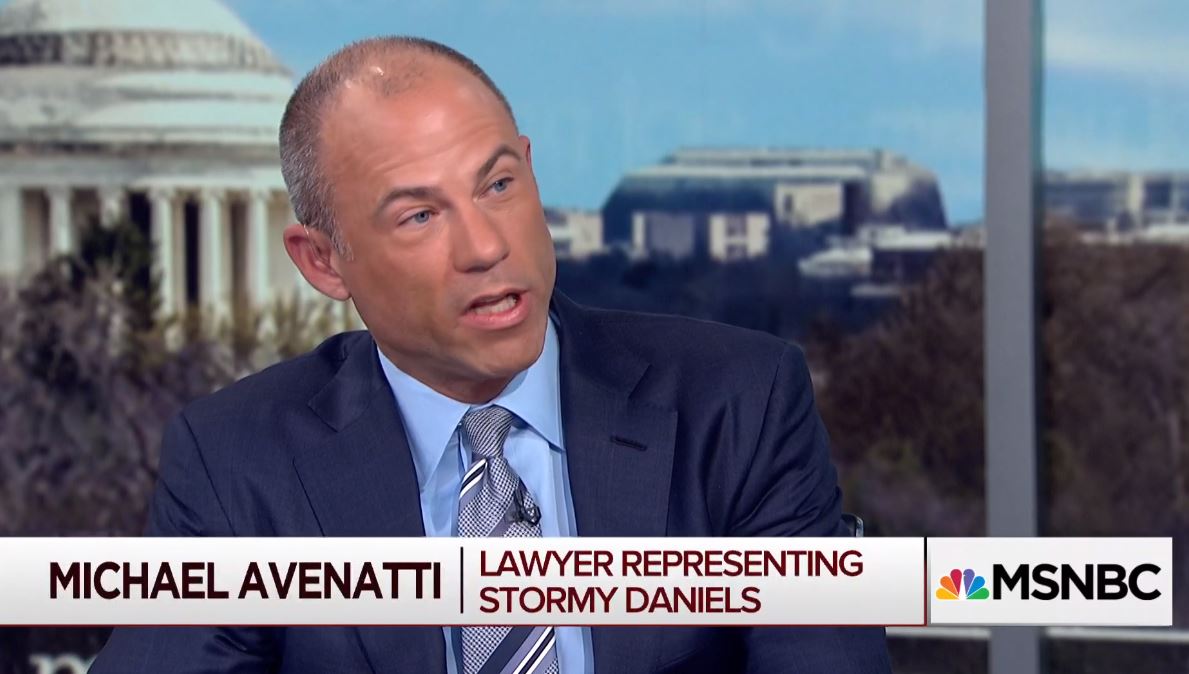
There are a number of arguments that Stormy Daniels‘ attorney Michael Avenatti has made against the validity of Daniels’ nondisclosure agreement regarding her alleged affair with President Donald Trump. One particular argument, which was recently included in Daniels’ amended complaint and reiterated in a court filing on Sunday, stands out as particularly odd.
Daniels’ motion for expedited discovery and jury trial argued — among other things — that the nondisclosure agreement that Daniels signed to keep quiet regarding an affair she allegedly had with Trump was invalid because it aimed to cover up a crime under New York law, namely adultery.
Avenatti wrote in his motion that the agreement and its arbitration clause are invalid “because they cover up adulterous conduct, a crime in Mr. Trump’s home state of New York.”
The problem, of course, is that while Trump may be from New York, the alleged affair is said to have taken place in California, where adultery is not a crime. Indeed, most states do not criminalize cheating on one’s spouse.
“In California, it doesn’t matter if you’re committing adultery” Los Angeles criminal defense attorney Sara Azari told Law&Crime. “New York has no part in this.”
While Cohen is a New York attorney, that doesn’t mean that all of a sudden the New York Penal Law would apply to alleged acts that took place in California.
Azari said that Avenatti is using a “kitchen sink approach” to his case against Trump and Michael Cohen. She said the more winnable arguments are the ones he’s making regarding the substance of the agreement and Trump’s lack of signature. The idea that it’s invalid because it was meant to cover up adultery is a “weak argument,” Azari said.
Perhaps more intriguing, however, is that if Avenatti’s argument did hold weight, it would implicate his own client just as much as Trump. The statute that Avenatti cited is NY Penal Law Section 255.17, which says that both people involved in an extramarital sexual encounter are guilty of a misdemeanor. The statute says:
A person is guilty of adultery when he engages in sexual intercourse with another person at a time when he has a living spouse, or the other person has a living spouse.
If Trump is guilty of a crime for this (he’s not), then Daniels would be guilty too (she’s not).
Granted, Avenatti was careful with his wording and did not explicitly say that that Trump’s alleged adultery was a crime, just that adultery in general is a crime in Trump’s home state, which is true. However, the implication is there because Avenatti is using the cover up of this alleged adultery as a reason why the agreement does not have a lawful purpose. If Trump’s alleged conduct was lawful, then paying someone to remain silent about it would be a lawful purpose.
Avenatti did not respond to Law&Crime‘s questions regarding this.
What makes this argument all the more curious is that Avenatti has made similar arguments against the agreement that are far more valid. For example, he claimed that the agreement was invalid for having a separate illegal purpose, being an illegal campaign contribution. While the FEC has yet to weigh in on a complaint that the $130,000 payment to Daniels was an illegal and unreported in-kind contribution to Trump’s campaign, there is a strong argument that it was.
Judge S. James Otero has already expressed a lack of patience for Avenatti, criticizing his previous untimely attempt to fight off arbitration, and even nitpicking the number of pages he used in a court filing. Even if part of Avenatti’s case is strong, throwing the kitchen sink at his opponents may not help him curry favor with the bench.
[Image via MSNBC screengrab]